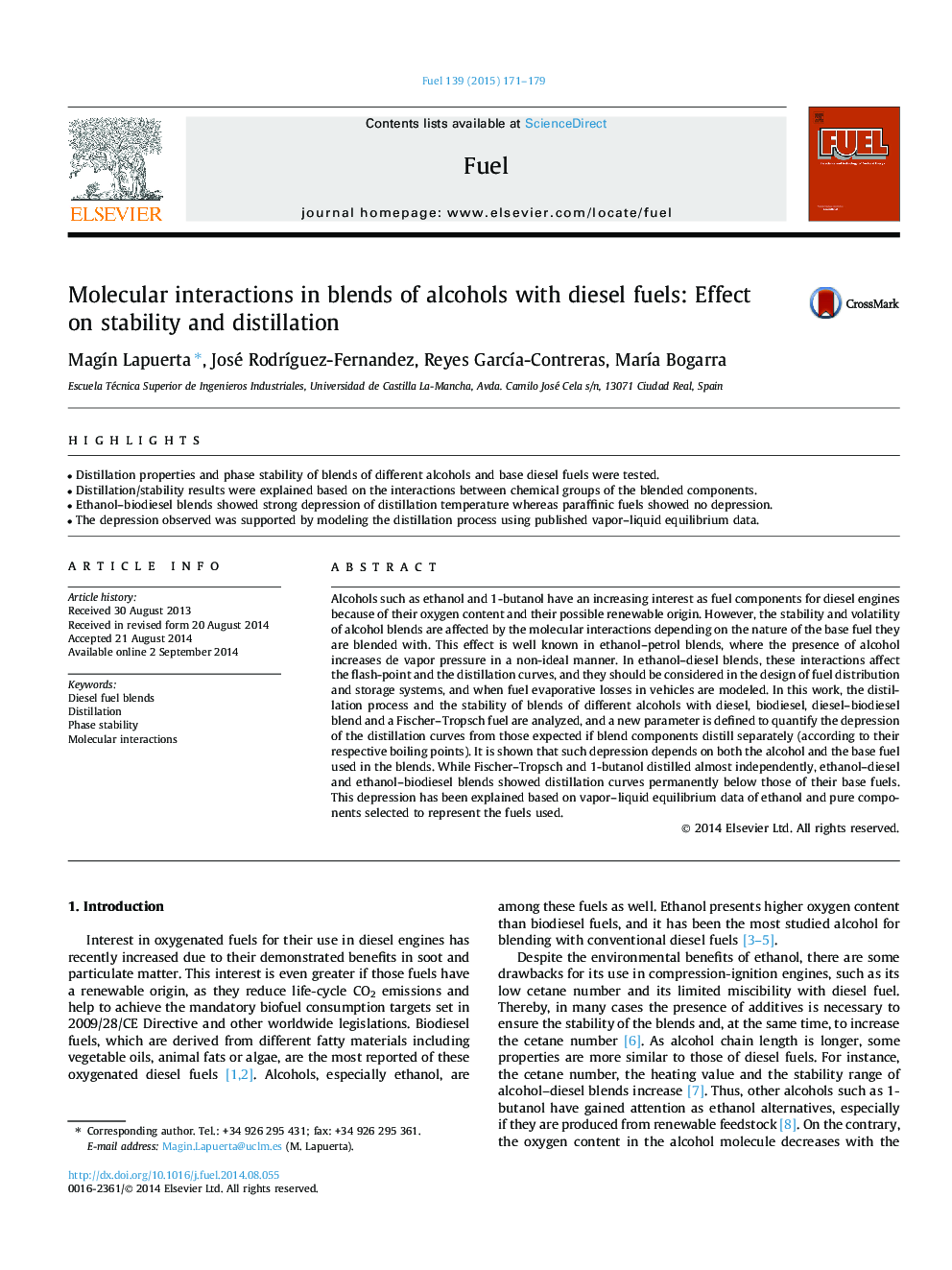| Article ID | Journal | Published Year | Pages | File Type |
|---|---|---|---|---|
| 6636427 | Fuel | 2015 | 9 Pages |
Abstract
Alcohols such as ethanol and 1-butanol have an increasing interest as fuel components for diesel engines because of their oxygen content and their possible renewable origin. However, the stability and volatility of alcohol blends are affected by the molecular interactions depending on the nature of the base fuel they are blended with. This effect is well known in ethanol-petrol blends, where the presence of alcohol increases de vapor pressure in a non-ideal manner. In ethanol-diesel blends, these interactions affect the flash-point and the distillation curves, and they should be considered in the design of fuel distribution and storage systems, and when fuel evaporative losses in vehicles are modeled. In this work, the distillation process and the stability of blends of different alcohols with diesel, biodiesel, diesel-biodiesel blend and a Fischer-Tropsch fuel are analyzed, and a new parameter is defined to quantify the depression of the distillation curves from those expected if blend components distill separately (according to their respective boiling points). It is shown that such depression depends on both the alcohol and the base fuel used in the blends. While Fischer-Tropsch and 1-butanol distilled almost independently, ethanol-diesel and ethanol-biodiesel blends showed distillation curves permanently below those of their base fuels. This depression has been explained based on vapor-liquid equilibrium data of ethanol and pure components selected to represent the fuels used.
Related Topics
Physical Sciences and Engineering
Chemical Engineering
Chemical Engineering (General)
Authors
MagÃn Lapuerta, José RodrÃguez-Fernandez, Reyes GarcÃa-Contreras, MarÃa Bogarra,
